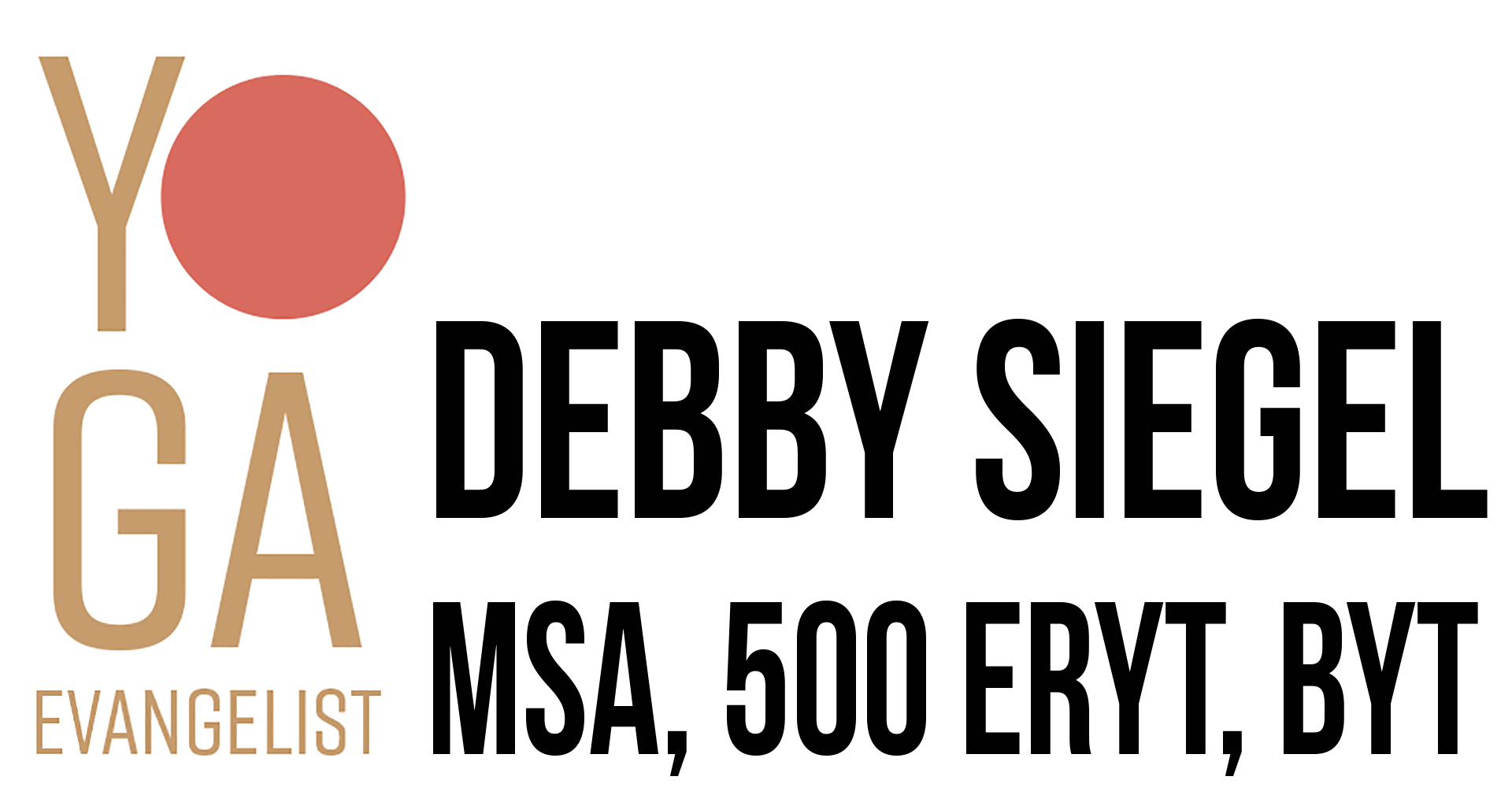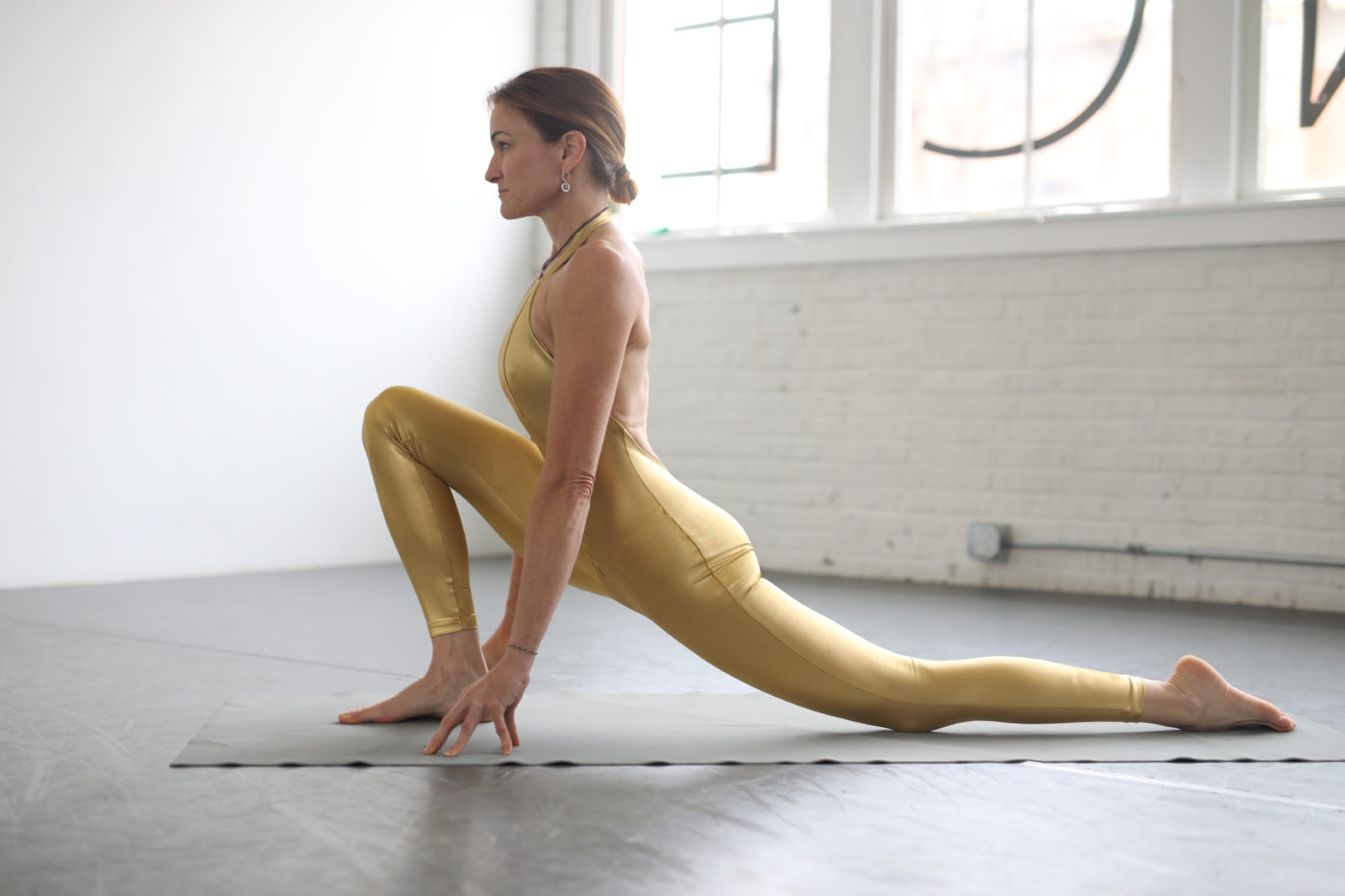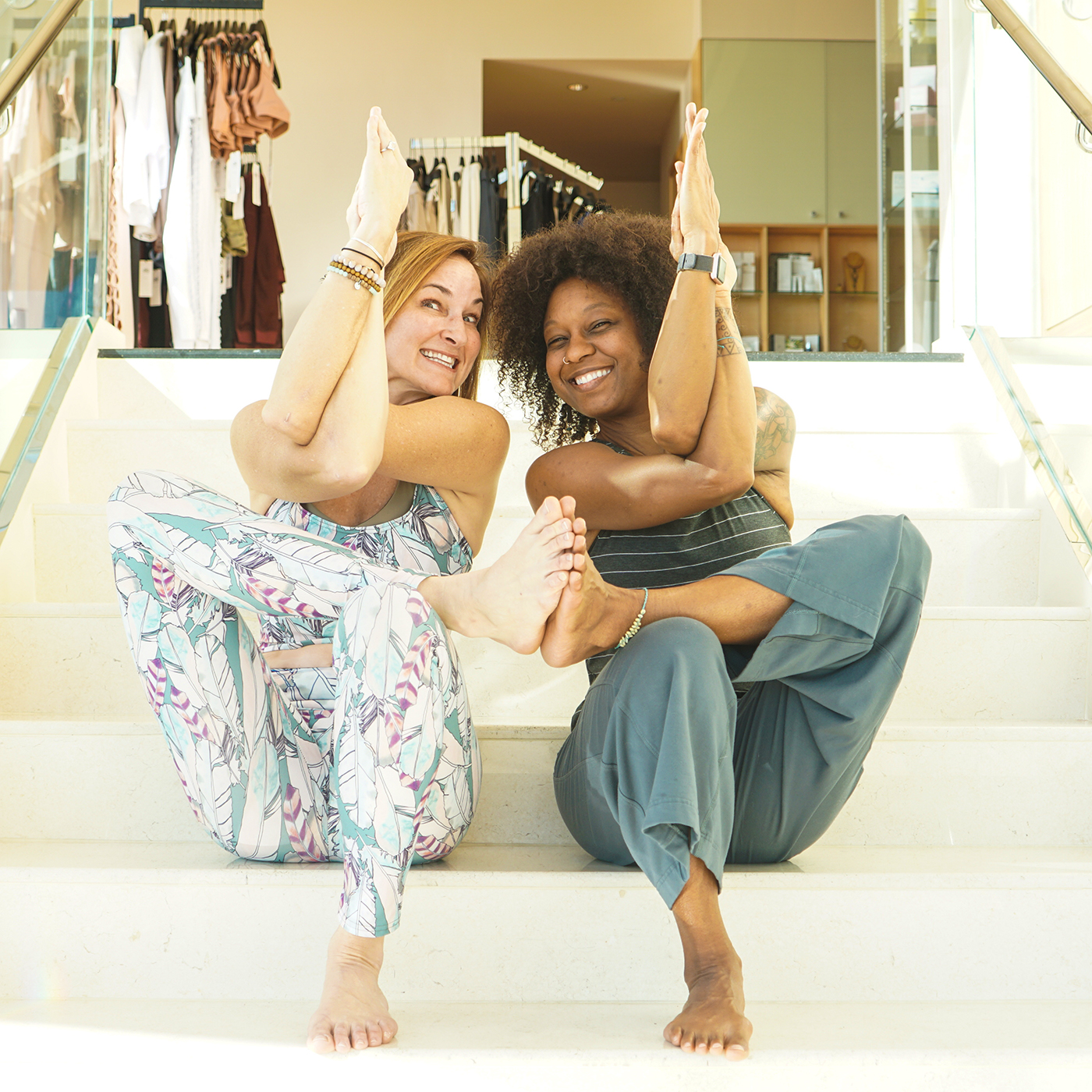(originally appeared in the Terrain Magazine‘s Life Outside Festival guidebook.)
By Debby Siegel, MSA, RYT
You know you want to, but you have yet to begin practicing yoga. You’re breathing, right? Great. Then, you’ve got everything you need! You don’t have to be flexible or able to stand on your head. Nor do you need to chant or know Sanskrit. You just need to connect to your breath and practice mindfulness — the directing and focusing of your mental activity. Don’t worry, it’ll come. You may not believe you can quiet your mind, but if you continue to show up to a practice, you’ll soon be craving that head space brought about by the connection of yoga.
Yoga translates to yoke, union, connection. It’s simply connecting to one’s breath and then — in a vinyasa-style class, the most popular form of yoga in the U.S. — connecting the breath to the movement. You typically inhale to lengthen in a stretch or posture and exhale to sink deeper or surrender more into the pose. There are some basic guidelines for attending your first yoga class. You’ll want to wear clothes that allow you to move freely. Think somewhat fitted, so that when your head is lower than your hips you’ll still be able to breathe and not have your shirt around your face. I also recommend bringing a reusable bottle filled with water. Any form of moving and stretching your limbs will be further nourished by staying well hydrated. If you don’t own a yoga mat, most studios have loaners.
St. Louis is rich with opportunities to find your flow. There are studios on almost every corner, online classes-a-plenty and teachers constantly graduating, ready to begin filling classes. With so many locations and instructors, it may be hard to know where to begin. But the yoga studio, teacher and style that end up working for you ultimately depend on who you are and where you are during certain points in your life — and even on that particular day! Begin your search based on location and cost, but keep in mind that yoga is an investment in your health and longevity. It’s most important that the teaching is safe for your body and mind. You should feel welcome and able to choose from various options during an all-levels class. Find who and what resonates with you and keep looking until you do. Also know that no matter how long you practice yoga, how many retreats you attend or teacher certifications you might achieve, you’ll always be a beginner. Yoga is a lifelong rehearsal. Continue to practice. Continue to show up, and respect your body’s capabilities each time. Patience is a form of compassion. The more you practice listening to your body and being kind to yourself, the more you’ll notice the many benefits of yoga on and off the mat.




